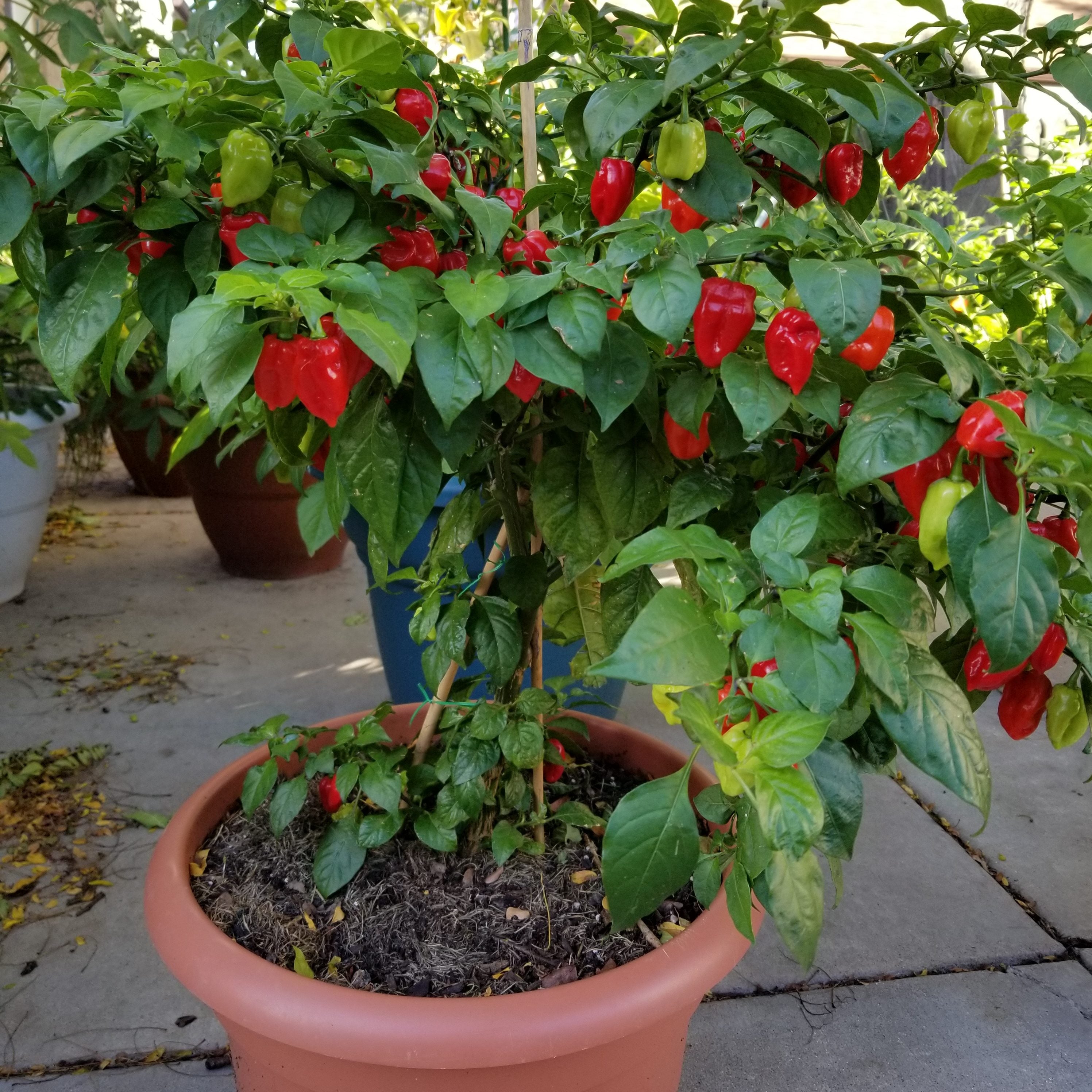Organic Vs. Synthetic Fertilizers: Which Is Best for Nurturing Healthy And Balanced Pepper Plants?
In the world of nurturing healthy pepper plants, the selection in between artificial and organic plant foods stands as a crucial choice with far-reaching effects. While both alternatives objective to offer essential nutrients to sustain plant growth, the subtleties of their influence on the soil, plant wellness, and the atmosphere spark a discussion that echoes throughout the horticulture neighborhood. Understanding the distinctive advantages and potential challenges of each fertilizer kind is vital for pepper growers looking for to enhance their returns while preserving a lasting and eco-conscious approach.
Advantages of Organic Fertilizers
Organic plant foods provide a lasting and environmentally-friendly strategy to nourishing pepper plants, giving important nutrients without the usage of synthetic chemicals. These all-natural fertilizers are acquired from organic resources such as compost, manure, bone dish, and algae, promoting dirt wellness and biodiversity. Unlike synthetic plant foods, organic choices launch nutrients slowly, making sure a well balanced and steady supply for pepper plants to prosper.
One significant advantage of natural fertilizers is their capability to boost soil structure and water retention. By boosting dirt health, natural plant foods promote helpful microbial activity, which helps in nutrient uptake by pepper plants. In addition, natural fertilizers decrease the danger of chemical run-off, protecting water sources from contamination and guarding the environment.
In addition, natural fertilizers add to long-lasting dirt fertility by advertising the development of valuable soil organisms. These organisms assist damage down organic matter, launching nutrients in a form that is easily obtainable to pepper plants. best fertilizers for peppers. By cultivating a healthy dirt ecosystem, natural plant foods sustain sustainable pepper cultivation practices that benefit both plants and the environment
Drawbacks of Synthetic Plant Foods
Synthetic plant foods, in comparison to their organic equivalents, present numerous disadvantages when made use of to nurture pepper plants, affecting both plant health and ecological sustainability. One major drawback of artificial fertilizers is their propensity to leach nutrients from the dirt swiftly.
Additionally, the overuse of synthetic plant foods can contribute to water air pollution. Excess fertilizers not soaked up by plants can wash away into water bodies, causing eutrophication, where algae flowers deplete oxygen degrees in the water, harming marine life. Artificial fertilizers are commonly obtained from non-renewable sources, such as fossil fuels, contributing to carbon exhausts and ecological deterioration during their manufacturing.
Nutrient Absorption Contrast
Effective nutrient absorption plays a crucial function in the total health and growth of pepper plants. When contrasting natural and artificial plant foods in terms of nutrient absorption, organic plant foods have the benefit of providing a much more well balanced and slow-release resource of nutrients (best fertilizers for peppers). Organic plant foods about his consist of a variety of macro and micronutrients that are not only beneficial for the plants but likewise advertise healthy and balanced dirt microbial activity, which aids in nutrient uptake. On the other hand, artificial fertilizers commonly give a quick release of nutrients, which can result in leaching and overflow, causing reduced nutrient absorption prices by the plants.
Additionally, organic fertilizers improve soil structure and water retention ability, permitting pepper plants to accessibility nutrients extra successfully. This better dirt high quality assists in root advancement, allowing much better nutrient absorption. Synthetic plant foods, although originally improving plant development because of their high nutrient concentrations, might prevent long-term nutrient absorption by degrading dirt wellness gradually.
Environmental Impact Factors To Consider

On the various other hand, synthetic plant foods, although typically more promptly offered and focused to plants, can have damaging effects on the atmosphere if not used correctly (best fertilizers for peppers). Their manufacturing requires high power inputs, resulting in greenhouse gas exhausts and contributing to environment adjustment. Additionally, the runoff of excess synthetic plant foods can contaminate water sources, bring about eutrophication and hurting marine ecosystems.
Ideal Plant Food Practices for Peppers
To attain this, it is essential to follow ideal plant food techniques customized to the certain requirements of pepper plants. One important practice is to perform a soil examination prior to applying any plant foods.
One more essential practice is to feed pepper plants at the appropriate time. Commonly, peppers take advantage of getting fertilizer at growing and afterwards once again when they start to blossom. Over-fertilizing can cause nutrition inequalities and hurt the plants, so it is important to follow recommended application prices.
Additionally, picking a balanced plant food with an NPK proportion that fits pepper plants' needs is fundamental. Inevitably, combining artificial and organic fertilizers deliberately can help support healthy and balanced pepper plants while reducing ecological impact.
Final Thought

Organic plant foods offer an environmentally-friendly and lasting approach to beneficial pepper plants, providing vital nutrients without the usage of synthetic chemicals. Unlike synthetic fertilizers, natural alternatives launch nutrients slowly, guaranteeing a consistent and well balanced supply for pepper plants to prosper.
Artificial plant foods, in contrast to their organic equivalents, posture numerous disadvantages when used to nourish pepper plants, affecting both plant health and wellness and ecological sustainability. When contrasting natural and artificial plant foods in terms of nutrient absorption, natural plant foods have the benefit view it now of offering a much more well balanced and slow-release resource of nutrients.Moreover, natural plant foods improve dirt structure and water retention capability, enabling pepper plants to gain access to nutrients a lot more effectively.